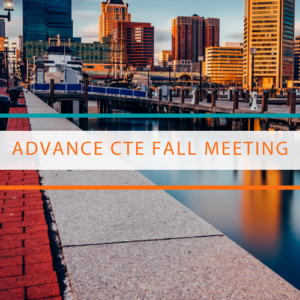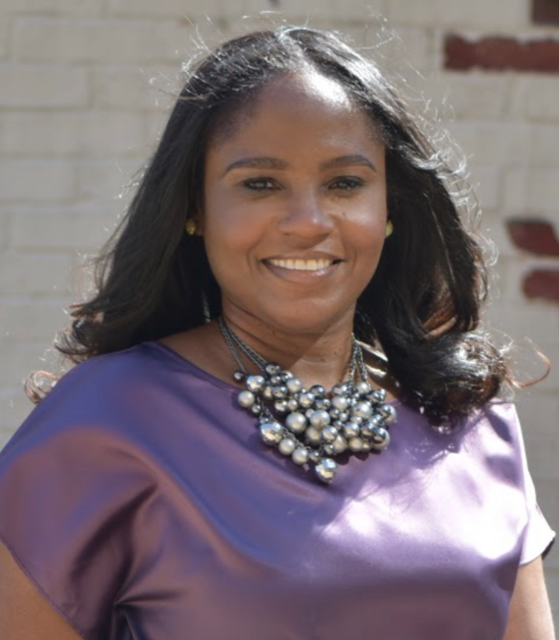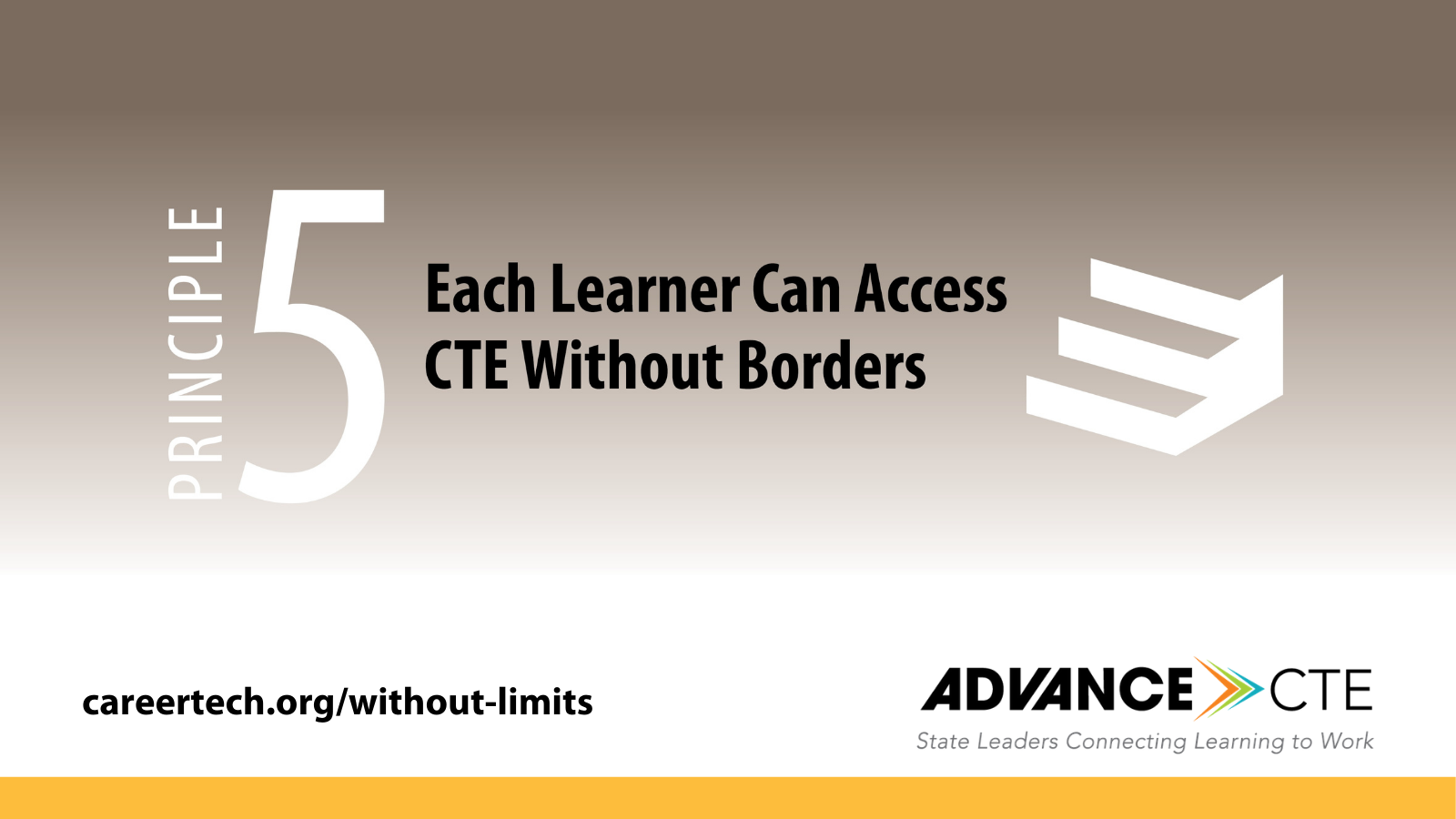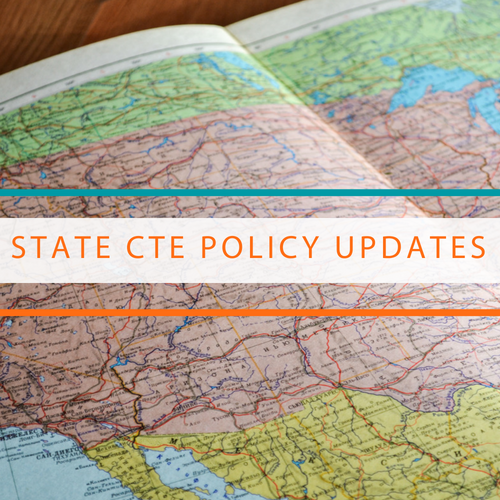 Today, Advance CTE released its primary implementation tool and Request for Proposals (RFP) to support states in transitioning from the education and awareness phases of the past six months to evaluation and implementation phases of Without Limits: A Shared Vision for the Future of Career Technical Education (CTE Without Limits).
Today, Advance CTE released its primary implementation tool and Request for Proposals (RFP) to support states in transitioning from the education and awareness phases of the past six months to evaluation and implementation phases of Without Limits: A Shared Vision for the Future of Career Technical Education (CTE Without Limits).
Pushing the Limits: A Roadmap for Advancing CTE Without Limits is a step-by-step guide to help states conduct an initial alignment test of current policies and practice with vision principles, identify top areas for action, and develop an action plan of near and long-term implementation strategies for one or multiple vision principles.
The States Advancing CTE Without Limits RFP allows states to be early leaders in deeper implementation work of 1-2 vision principles and related actions through funding, intensive technical support, and a community of practice with other state teams.
The following Q&A with Executive Deputy Director Kate Kreamer provides guidance on how states of all capacities can leverage the roadmap and RFP opportunity to make meaningful first steps towards implementation.
Let’s explore the roadmap, which is going to be a useful tool for states for years to come as they work to realize CTE Without Limits. What was the idea behind the roadmap design, and how is it tailored for use by any state?
CTE Without Limits is intentionally ambitious, and we knew it may be difficult for states to determine the best place to start in transforming their systems. We listened to Advance CTE’s Board of Directors and our vision kitchen cabinet of thirteen state leaders committed to bringing the vision to life – they asked for a step-by-step process to evaluate their current systems against the vision, as well as an action plan down to the month and week as a manageable means to carry out the work. We heard loud and clear that our members wanted a “roadmap” to help them accomplish the principles and actions within the vision.
Advance CTE is proud to serve all 50 states, DC and territories. The roadmap is designed to meet states at their capacity. For example, states can choose to tackle just one principle or all of them. The tool is broken down by action area, which is a more manageable grain size than a principle, and allows for deeper reflections. Importantly, we kept each set of questions limited to no more than ten to allow states to work at their own pace and collaborate without getting too overwhelmed. Additionally, we combined scoring with the qualitative evaluations to make it easier for states to identify the most urgent and/or achievable areas for action.
At first glance, the roadmap can seem a little overwhelming. What are some easy first steps that state leaders can take to prepare to conduct the self-assessment in this tool?
I want to be candid that the roadmap is just the first step of what will be a long road towards implementation for both states and the more than 40 vision partners. This roadmap is meant to be returned to and used in multiple ways over time.
That being said, one of the easiest steps states can take is to conduct partner mapping. Who do they need to have at the table to conduct a complete, honest assessment of systems through this roadmap?
Next, states can determine how this roadmap connects to pre-existing evaluation checkpoints. Use those checkpoints to create a schedule where pieces of the roadmap can be incorporated into existing meetings about a state vision, strategic plan, Strengthening Career and Technical Education for the 21st Century Act (Perkins V) planning, etc.
Finally, we understand that most states will address one or two principles at a time, not all five – or even just some of the highest impact actions within the vision. Advance CTE’s CTE Without Limits State Capacity Tool is part of our grant application for vision implementation assistance, but it is also a great first step for any state whether or not they apply to quickly determine which principles are most attainable and which principles require the most urgent action.
Speaking of the grant application, let’s discuss States Advancing CTE Without Limits, which is an opportunity for states to apply for more direct and intensive vision support. What is the time commitment and expectation for states in the cohort?
This RFP is open to any state and is intended to provide a dedicated, collaborative space to receive intensive vision through a cohort of up to five states. I’m really excited about this cohort because they will be the early adopters and national models for vision success with a lot of lessons learned along the way.
The grant is a significant time commitment – work must be completed between December 2021 and October 2022, but it is designed to empower the state to continue the work for years to come. States must provide a single point of contact for the project who is expected to attend monthly and bi-monthly calls. Collaboration is also a key focus of this grant – we expect states to not only develop a cross-sector team within their state for this work, but also be active participants in cross-state spaces to ensure the models developed from this work can be utilized by all members.
I want to emphasize that states are not expected to conduct implementation activities for all five principles. Part of the application process is using the capacity tool to determine one to two principles and the related actions that will be the focus of the project during the grant period.
Can you give a little more detail about the supports participating states will receive?
We know states struggle with capacity building across all facets of systems transformation, so this grant focuses on providing intense, individualized support while also facilitating broader knowledge-building across all five vision principles through the cross-state community of practice.
Selected states will receive funding up to $25,000; a dedicated coach with monthly check-ins and intensive technical assistance; one in-state or virtual visit; dedicated spaces to connect with other states in the cohort and complete the vision roadmap; and opportunities for national recognition and presentations to share the work with members and stakeholders. Visit the vision webpage to access the roadmap, RFP application, and additional vision education and implementation tools. The deadline for states to apply for States Advancing CTE Without Limits is November 9, 2021 at 5:00PM ET.
Stacy Whitehouse, Senior Associate Communications and State Engagement


 On October 27 and 28, over 270 state Career Technical Education (CTE) leaders gathered for Advance CTE’s 2021 Fall Meeting. Through timely plenary discussions, breakout and networking sessions, members and supporters were able to reflect on the transformations of the COVID-19 (coronavirus) pandemic, gain knowledge on the latest research and promising practices in states, and create community by building networks with leaders in similar roles.
On October 27 and 28, over 270 state Career Technical Education (CTE) leaders gathered for Advance CTE’s 2021 Fall Meeting. Through timely plenary discussions, breakout and networking sessions, members and supporters were able to reflect on the transformations of the COVID-19 (coronavirus) pandemic, gain knowledge on the latest research and promising practices in states, and create community by building networks with leaders in similar roles.  Advance CTE welcomes Dr. Tunisha Hobson as State Policy Manager. Dr. Hobson will support t
Advance CTE welcomes Dr. Tunisha Hobson as State Policy Manager. Dr. Hobson will support t Advance CTE welcomes Nithya Govindasamy as a Senior Advisor. Nithya leads and manages major organization-wide, highly visible initiatives that support, promote and increase equitable access to and success in high-quality Career Technical Education (CTE), which includes: workforce development, education and equity initiatives; technical assistance for
Advance CTE welcomes Nithya Govindasamy as a Senior Advisor. Nithya leads and manages major organization-wide, highly visible initiatives that support, promote and increase equitable access to and success in high-quality Career Technical Education (CTE), which includes: workforce development, education and equity initiatives; technical assistance for  Today, Advance CTE released its
Today, Advance CTE released its 

 State leaders, particularly state legislators, have a unique role to play in ensuring equitable access to high-quality Career Technical Education (CTE). As the COVID-19 pandemic continues, access and technology gaps have been laid bare, revealing inequities in opportunities for marginalized learner populations. While
State leaders, particularly state legislators, have a unique role to play in ensuring equitable access to high-quality Career Technical Education (CTE). As the COVID-19 pandemic continues, access and technology gaps have been laid bare, revealing inequities in opportunities for marginalized learner populations. While  In April 2021, Advance CTE released
In April 2021, Advance CTE released  With a focus on recruitment and retention, it is important for learners and families of CTE to see success stories of individuals who look like them and share similar educational, racial, socio-economic, gender and geographic backgrounds.
With a focus on recruitment and retention, it is important for learners and families of CTE to see success stories of individuals who look like them and share similar educational, racial, socio-economic, gender and geographic backgrounds. Families and learners both participating in and considering CTE highly value an education experience that allows learners to explore opportunities after high school that lead to college and career success. In this example, Utah used graphics of learners engaging in real-world skills training to promote its Auto Mechanics and Repairs career pathway. This is a way of demonstrating the connection from CTE courses, work-based learning settings and youth apprenticeship programs to career success.
Families and learners both participating in and considering CTE highly value an education experience that allows learners to explore opportunities after high school that lead to college and career success. In this example, Utah used graphics of learners engaging in real-world skills training to promote its Auto Mechanics and Repairs career pathway. This is a way of demonstrating the connection from CTE courses, work-based learning settings and youth apprenticeship programs to career success. Using local examples can help explain the nuts and bolts of how CTE delivers success by making the connection between CTE and a specific career or industry, as well as highlighting partnerships with local colleges and employers that are recognizable to parents/guardians and learners.
Using local examples can help explain the nuts and bolts of how CTE delivers success by making the connection between CTE and a specific career or industry, as well as highlighting partnerships with local colleges and employers that are recognizable to parents/guardians and learners. Wisconsin CTE showcased CTE to parents/guardians and learners by lifting up student success stories. One avenue to find compelling learner examples is to coordinate with statewide or local Career Technical Student Organizations (CTSOs) and gather testimonials, photos and stories to share on social media. This tweet focused on a local learner success story to create human interest in CTE. To help expand the reach of this tweet, Wisconsin CTE used relevant hashtags and tagged the state CTSO and the university the learner was attending. This type of post is a great way to highlight CTE and the many ways CTE benefits learners.
Wisconsin CTE showcased CTE to parents/guardians and learners by lifting up student success stories. One avenue to find compelling learner examples is to coordinate with statewide or local Career Technical Student Organizations (CTSOs) and gather testimonials, photos and stories to share on social media. This tweet focused on a local learner success story to create human interest in CTE. To help expand the reach of this tweet, Wisconsin CTE used relevant hashtags and tagged the state CTSO and the university the learner was attending. This type of post is a great way to highlight CTE and the many ways CTE benefits learners.